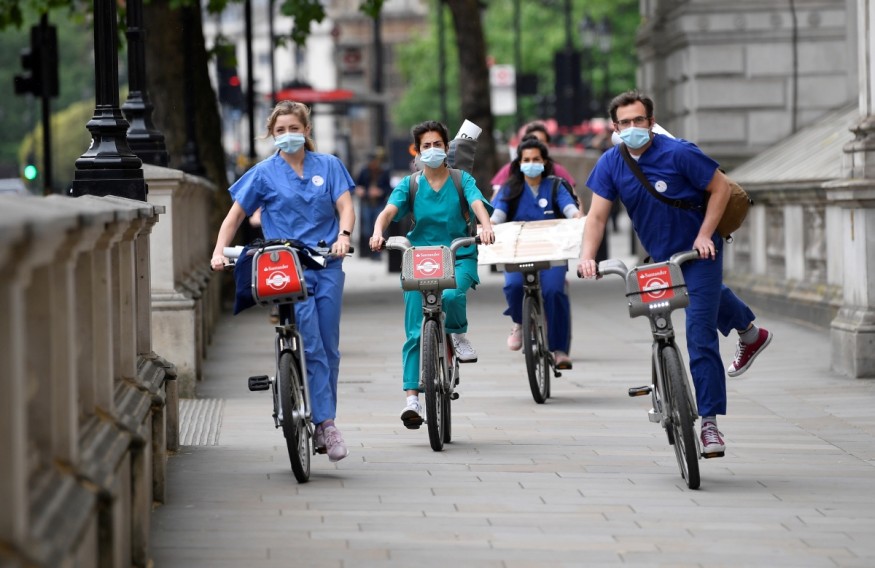Unlike other diseases, coronavirus does not have a telling symptom or group of symptoms that could help doctors diagnose people with the infection. Although there is a sudden loss of smell and taste, not all people experience it.
More so, many people who get infected with COVID-19 will not experience any symptoms at all. That is why testing is very important as it is the only way to confirm infection.

Some scientists used a mobile application and machine learning to track symptoms and divide them into six groups. They aimed to determine which groups of symptoms predict severe COVID-19 cases that can develop complications that will help patients know when to go to hospitals to seek proper treatment.
The scientists think they can predict nearly 80% of the time a patient would need respiratory support using the data from the first five days of the onset of symptoms, other information, and medical conditions. They published their study in medRxiv, which means it has not yet been peer-reviewed.
Getting data from a mobile app
"Anything you can do earlier to stop people coming in half-dead is going to increase the chance of survival and also stop clogging up hospital beds unnecessarily," says Professor Tim Spector of King's College London.
The researchers used the data from a mobile app with more than four million users, and 1,653 users tested positive for COVID-19, 383 of them made at least one trip to the hospital, and 107 needed respiratory support.
They applied machine learning algorithms to explore whether the 14 symptoms they monitored can be grouped, and then they identified six groups of COVID patients. Each group was associated with a particular outcome, making the scientists believe that they can predict whether a patient will develop a severe case based on the combination of symptoms.
Read Also: Man Dies From Coronavirus After Claiming It Was Just 'Hype' and Refusing to Wear Face Masks
Six coronavirus groups King's College London identified
Cluster 1 with 462 patients had upper respiratory tract symptoms such as persistent cough and muscle pain. About 1.5% of them needed respiratory support, and 16% had made at least one trip to the hospital.
Cluster 2, with 315 patients, claims they experience upper respiratory tract symptoms, increased skipping of meals, and fever. 4.4% of the patients required respiratory support, and 17.5% visited the hospital.
Cluster 3, with 216 patients, experienced gastrointestinal symptoms like diarrhea. About 3.7% needed respiratory support, while 24% made at least one visit to the hospital.
Cluster 4, with 280 patients, showed early signs of severe fatigue, chest pain, and cough. About 8.6% of the patients required respiratory support, while 23.6% made at least one visit to the hospital.
Cluster 5, with 213 patients, experienced confusion, skipped meals, severe fatigue, and 9.9% of patients needed respiratory support. Moreover, 24.6% of them went to the hospital at least once.
Cluster 6, with 167 patients, has marked respiratory distress, the onset of breathlessness, chest pain, confusion, fatigue, and gastrointestinal symptoms. 20% of these patients needed respiratory support, and 45.5% went at least once to the hospital.
According to the team, Clusters 1 and 2 represent milder forms of COVID-19. They repeated their work with data from 1,047 app users, adding the loss of smell and taste and headaches. They found that symptoms of loss of taste and smell happened in all groups but are longer-lasting in milder cases.
"By recording all the symptoms and when they occur in something like a medical app, you can significantly increase the ability to predict who is going to need hospital support, and potentially save lives," Spector said.
Read More: Russia Completes Human Trials on Coronavirus Vaccine, First In History












